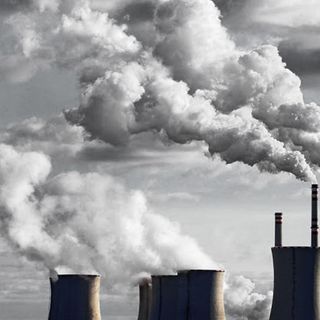The Earth is losing plant species 350 times faster than any previous extinction average in history, according to a new analysis conducted by a team of international researchers and published in the journal Current Biology. The finding adds to evidence that Earth is currently in the midst of its sixth mass extinction.
The newly calculated plant extinction rate is driven by human activities, particularly agriculture, urbanization, and other activities that destroy natural habitats and/or contribute to climate change, the researchers write in The Conversation. And, this already unprecedented plant extinction rate is only expected to accelerate: Scientific models have previously suggested the Earth will lose plant species at a frequency several thousand times faster than historical averages within the next 80 years.
Researchers credit the discrepancy between their finding and past rates to a lack of reliable data, rooted in how difficult it is to determine extinction with accuracy. “… declaring a plant extinct is challenging, simply because they’re often very difficult to spot, and we can’t be sure we’ve found the last living individuals. Indeed, a recent report found 431 plant species previously thought to be extinct have been rediscovered,” they write.
Related on The Swaddle:
Closeness to Climate Change and Pollution Can Cause Distress, Environmental Grief
Still, it would be a mistake to rely on the miraculous ‘rediscovery’ of species in the future. The current, alarming rate of biodiversity loss — not even considering future acceleration — could have devastating effects on human life.
“Whether it’s pollinating our crops, purifying our water, providing fish to eat or fibers to weave, we are dependent on biodiversity. Ecosystems can only continue to provide things for us if they continue to function in approximately the same way,” James Dyke wrote for The Conversation in 2015, when research suggesting a sixth mass extinction was first published. The effects of species extinction may be invisible and unfelt until a point of no return, explains Dyke, a senior lecturer in Global Systems at the University of Exeter, U.K. “The analogy here is popping out rivets from a plane’s wing. The aircraft will fly unimpaired if a few rivets are removed here or there, but to continue to remove rivets is to move the system closer to catastrophic failure.”
No wonder human civilization is slated to end by 2050.




